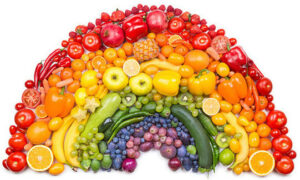Berries are not only delicious but also packed with health benefits due to their rich nutritional content. They are among the most antioxidant-rich fruits available. Low in calories and high in dietary fibre, berries are also good sources of essential vitamins and minerals, including vitamin C, vitamin K, vitamin A, potassium, and folate. We are now at the end of berry season in the UK, but the good news is that you can find great alternatives:
- Several studies show that frozen or dry berries contain similar levels of antioxidants to the fresh fruits. They are easy to find year round, I like to add them to cakes, porridge, granola or have them as a snack.
- Green tea, rich in catechins (a polyphenol) and black tea.
- Coffee: a known good source of polyphenols.
- Apples: the highest concentration of polyphenols is in the skin, but wash the fruit before eating it. Pears are another good seasonal alternative.
- Citrus fruits like oranges, grapefruits, lemons, and limes are abundant during cold months and rich in flavonoids and vitamin C.
- (unpeeled, canned) tomatoes are rich in lycopene, which is released and becomes more available for absorption when tomatoes are cooked. You can boil, bake, sauté, or make tomato sauce, paste, or soup to increase lycopene content. Lycopene is fat-soluble, so add a dash of EVOO to increase absorption.
- Garlic and onions will add flavour and antioxidants to your winter recipes.
- Leafy vegetables such as spinach, kale, Brussels sprouts…
You can see from this list that a way to add nutrients to your plate is adding colours: red, orange, green… the reason is that antioxidants are often pigments. Incorporating a diverse selection of colourful foods into your diet is therefore a simple manner to ensure that you are benefiting from the array of antioxidants and phytonutrients that contribute to overall health and well-being.
